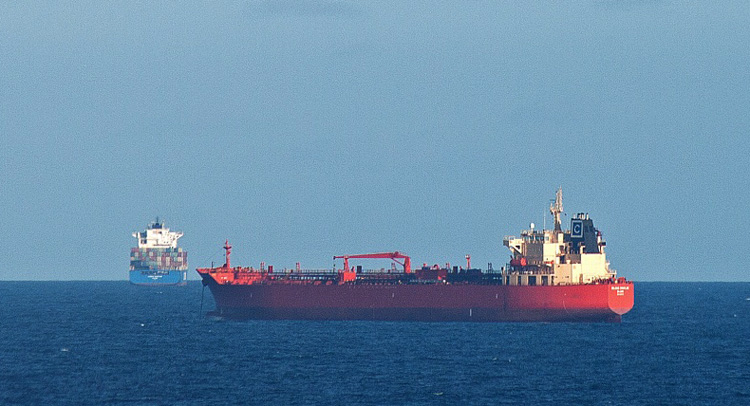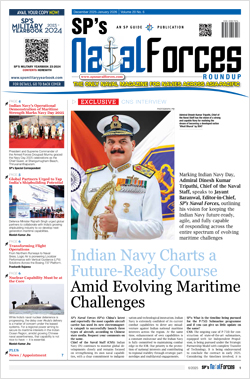INDIAN ARMED FORCES CHIEFS ON OUR RELENTLESS AND FOCUSED PUBLISHING EFFORTS

The insightful articles, inspiring narrations and analytical perspectives presented by the Editorial Team, establish an alluring connect with the reader. My compliments and best wishes to SP Guide Publications.

"Over the past 60 years, the growth of SP Guide Publications has mirrored the rising stature of Indian Navy. Its well-researched and informative magazines on Defence and Aerospace sector have served to shape an educated opinion of our military personnel, policy makers and the public alike. I wish SP's Publication team continued success, fair winds and following seas in all future endeavour!"

Since, its inception in 1964, SP Guide Publications has consistently demonstrated commitment to high-quality journalism in the aerospace and defence sectors, earning a well-deserved reputation as Asia's largest media house in this domain. I wish SP Guide Publications continued success in its pursuit of excellence.
- Global Partners Urged to Tap India's Shipbuilding Potential: Rajnath Singh at Samudra Utkarsh
- All about HAMMER Smart Precision Guided Weapon in India — “BEL-Safran Collaboration”
- India, Germany deepen defence ties as High Defence Committee charts ambitious plan
- G20 Summit: A Sign of Global Fracture
- True strategic autonomy will come only when our code is as indigenous as our hardware: Rajnath Singh
- India–Israel Joint Working Group Meeting on defence cooperation to boost technology sharing and co-development
Lawlessness in a Unipolar World
There is worrisome compromise of international institutions, agreements, treaties and arrangements that do not serve the domestic agenda of the US
 |
The Author is former Chief of Staff of a frontline Corps in the North East and a former helicopter pilot. He earlier headed the China & neighbourhood desk at the Defence Intelligence Agency. He retired in July 2020 and held the appointment of Addl DG Information Systems at Army HQ. |

A spate of reports in recent times about ships transmitting fake location coordinates to carry out murky and even illegal business operations and circumvent international laws and sanctions generated quite a bit of interest. Apparently scrappy oil tankers are reported loading fuel at dilapidated jetties projecting from Venezuelan refineries despite stringent US sanctions. Venezuelan economy is in tatters after years of US sanctions though it has the largest amount of oil reserves in the world with more than 300 billion barrels in reserve. Saudi Arabia has the second-largest amount of oil reserves with 297.5 billion barrels. Despite Venezuela's massive supply of natural resources, the country still struggles economically and is obviously resorting to this modus operandi to ship out oil and earn much needed foreign exchange to stay afloat. Why so, what international laws are they violating and what is illegal about Venezuela selling its oil are questions that need to be addressed.
Let's first deal with the technicalities about the fake location coordinates of the oil tankers. Under an UN International Maritime Organisation (IMO) Resolution of 2000 signed by nearly 200 countries and effective from 31 December 2004, all large ships must carry and operate satellite transponders, known as Automatic Identification Systems or AIS, which transmits a ship's identification and navigational position data. AIS is intended as a navigational aid to supplement radar. Ships broadcast their GPS-determined locations on VHF frequencies. Other vessels within about a 23-mile radius can pick up the signals and plot them relative to themselves and other ships in the area. So, this is basically an arrangement to allow automatic exchange of shipboard information from the vessel's sensors – inputted static and voyage related data – between one vessel and another and between a vessel and a shore station(s) for the purposes of safety, avoid collision and possibly for insurance and related business purposes.
The US emerged as the hegemon that began imposing unilateral conditions and sanctions that furthered its own geo-political interests.
So why are the ships supposedly loading oil off Venezuela jetties transmitting false location or going dark in the first place when the AIS data is meant to ensure their safety and aid in navigation? Well, for over 15 years, the United States has imposed sanctions in response to Venezuela's supposedly lack of cooperation on antidrug and counterterrorism efforts. After illegally recognising Juan Guido, President of the opposition-led National Assembly as interim President, the Trump Administration had further tightened sanctions on Venezuela's state oil company, central bank, and government to pressure Maduro to leave power. Despite these actions, Maduro remains firmly in power. In blatant violation of international laws, the US can attempt a regime change illegally and escape any retributions but Venezuela selling its own oil is branded illegal, violation of international laws and its people made to suffer because of unilateral sanctions by the US which have no UN backing and mandate.
The result is that shipping companies are increasingly resorting to circumvent the AIS system by replicating the effects of a VPN cell phone app, making a ship appear to be in one place while physically being elsewhere. As long as there was fair play, all major global economy players had a stake in upholding an IMO order built on a GPS satellite navigation system. But its unlawful use to further the domestic agenda of the US in order to cripple the economies of diverse countries such as Venezuela, Iran and now Russia since the Ukraine conflict in February 2022 is injecting a point of inflection and chaos till alternate and perhaps conflicting arrangements take their place. This process appears irreversible now.
After the fall of the Berlin wall in 1989 signalled the demise of the Soviet Union and the end of cold war, checks and balances prevailing in the post WW-II international order have evaporated. The US emerged as the hegemon that began imposing unilateral conditions and sanctions that furthered its own geo-political interests. There is worrisome compromise of international institutions, agreements, treaties and arrangements that do not serve the domestic agenda of the US.
United States lectures China about freedom of navigation and rule of law but itself is not a signatory to the UN Convention on the Law of the Sea (UNCLOS) that lays down a comprehensive regime of law and order in the world's oceans and seas
The International Criminal Court or the ICC was formed in 2002 to investigate and where warranted, bring to trial individuals charged with the gravest crimes of concern to the international community: genocide, war crimes, crimes against humanity and the crime of aggression. But over 40 countries including the US and China are not members yet as they do not want their soldiers and leadership to be subject to its jurisdiction. When the ICC finally launched an investigation in 2020 into war crimes including the infamous torture chambers of Abu Ghraib prison and reported summary executions and drone attacks on civilians in Afghanistan, Trump imposed sanctions on the ICC staff. But it is happily trumpeting and egging on the ICC to launch investigations into alleged Russian war crimes in the Ukraine conflict. On 2nd March 2022, Karim Khan, Chief Prosecutor of the ICC, announced that he was opening an investigation of all 'past and present allegations of war crimes, crimes against humanity or genocide' committed during the war in Ukraine, which had begun less than a week earlier.
In the just ramped up tensions in the Taiwan Straits through provocative visits by US House speaker Nancy Pelosi and a horde of other senators and congressmen basically aimed at soaring up prospects for the Democrats in the November mid-term elections, it lectures China about freedom of navigation and rule of law. But the US itself is not a signatory to the UN Convention on the Law of the Sea (UNCLOS) that lays down a comprehensive regime of law and order in the world's oceans and seas.
The chaos and lawlessness that pervades the world today encompasses not just security architectures like the breakdown of long-held nuclear weapons and non-proliferation treaties and missile technology control regimes but also global financial arrangements like the BIS and SWIFT. Even the urgently needed climate change agenda does not find adequate support, especially from the prosperous countries because they do not wish to draw down their own conspicuous consumption and industrial activities yet expect the poorer nations to fall in line. The free for all jostling for supremacy by a diminishing superpower and a rising China, and efforts by Russia to hold onto its previous pole position have all undermined global institutions including the UN itself. So much so, that the UN chief Antonio Guterres laments that the UN risks ending up with 'G-nothing'.





